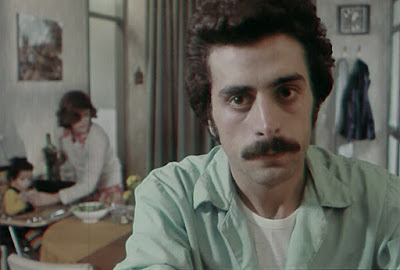The restored version of The Hills of Marlik played at Venice Classics 2019. Golestan passed away yesterday August 22, 2023. – EK
TAPPEHA-YE MARLIK [The Hills of Marlik]
Iran, 1963/1964, Director: Ebrahim Golestan
Alternative title: The Elements. Script.: Ebrahim Golestan. Director of photography: Soleiman Minassian. Editing: Ebrahim Golestan. Composer: Morteza Hannaneh. Voice-over.: Brian Spooner (English voice-over), Ebrahim Golestan (Farsi voice-over). Prod.: Golestan Film Studio [aka Golestan Film Unit]
A 3,000-year-old site in the north of Iran is simultaneously excavated by archaeologists and fertilized by farmers. Another example of Golestan’s documentary work about classical elements, in which the past touches the present, and there is a clear continuity among the forms of human life detected by the camera, as it breathes life into dead objects.
TAPPEHA-YE MARLIK [The Hills of Marlik]
Iran, 1963/1964, Director: Ebrahim Golestan
Alternative title: The Elements. Script.: Ebrahim Golestan. Director of photography: Soleiman Minassian. Editing: Ebrahim Golestan. Composer: Morteza Hannaneh. Voice-over.: Brian Spooner (English voice-over), Ebrahim Golestan (Farsi voice-over). Prod.: Golestan Film Studio [aka Golestan Film Unit]
A 3,000-year-old site in the north of Iran is simultaneously excavated by archaeologists and fertilized by farmers. Another example of Golestan’s documentary work about classical elements, in which the past touches the present, and there is a clear continuity among the forms of human life detected by the camera, as it breathes life into dead objects.










